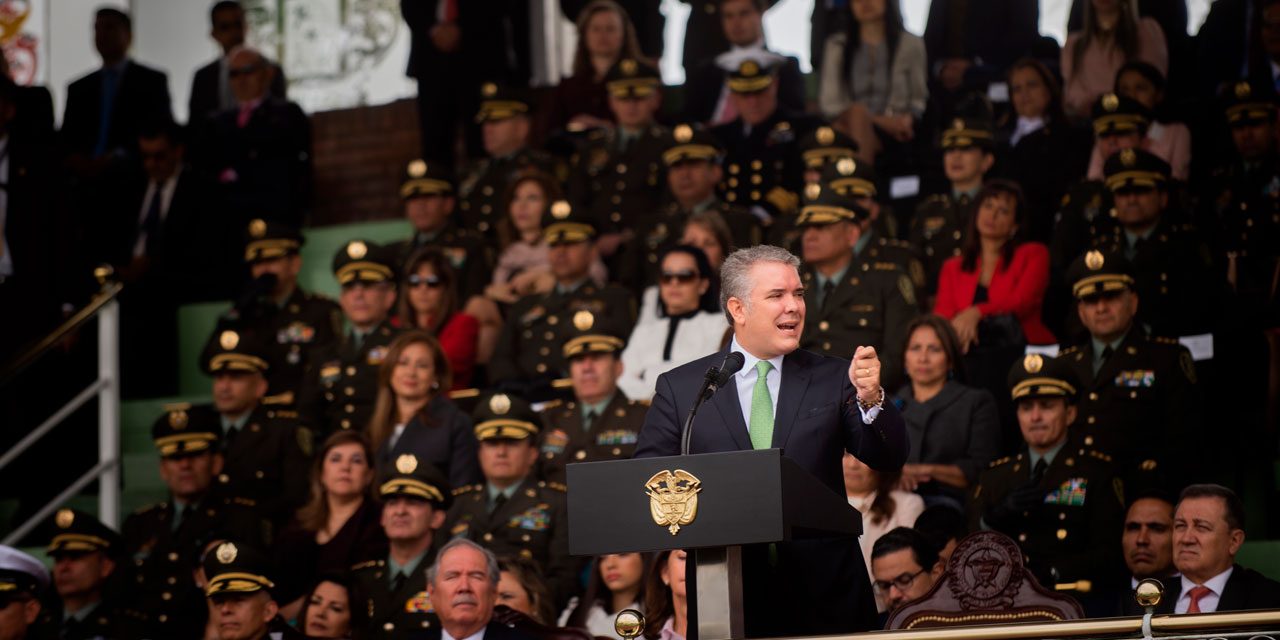Colombia’s President Ivan Duque has used the rearmament of a dissident FARC group to revive the militaristic rhetoric of his political patron, former President Alvaro Uribe.
In a number of public speeches held since the announcement of “Ivan Marquez” on Thursday, the president took advantage of the newly founded dissident group to discredit his country’s peace process and promote his hard-line counternarcotics policy.
The president’s newly found war rhetoric is diametrically opposed to that of the United Nations, political parties from the left to the center right and of peace advocates, who have urged to unite behind the country’s peace process.
Former government peace negotiator calls on Colombia to rally behind peace process
Duque’s war rhetoric and fictitious victories
Duque, who has been suffering abysmal approval ratings, echoed the far-right rhetoric of his political patron, former President Alvaro Uribe, and inflated the threat of the approximately 15 rearmed guerrilla commanders.
Like Uribe, Duque referred to the rearmed guerrillas as “narcoterrorists” and “bandits,” and referred to the security forces as “heroes of the motherland.”
The president falsely claimed an immediate military success against the new FARC dissident group after the military allegedly killed “Gildardo Cucho,” who reportedly belonged to an entirely different group.
Duque also said that “Colombia is united to confront these bandits,” contradicting pollsters that indicate most Colombians believe in a negotiated solution to the country’s armed conflict and disapproves of the president.
Days before trial, Uribe’s disapproval rating shoots to all-time high
Duque’s war rhetoric falls on deaf ears
Duque’s war rhetoric found little public support, except among the shrinking number of supporters of Uribe, who is expected in the Supreme Court to face fraud and bribery charges in October.
The reality is that the president has no majority in Congress and had been unable to convert his words into actions.
All political parties, included the FARC, rejected the decision of “Ivan Marquez” to return to arms, but many agree that the split is largely due to Duque’s failure to implement to peace process and the president’s far-right Democratic Center party’s sabotage attempts.
The United Nations’ mission in Colombia, which oversees the peace process, took the opportunity to call on Duque to “redouble efforts” to implement the peace deal.
When the ELN carried out a terrorist attack in Bogota in January, Duque was able to capitalize on the tragedy and boosted his approval rating from 29% to 42%, but only briefly. By June 62% of Colombians disapproved of their president again.


